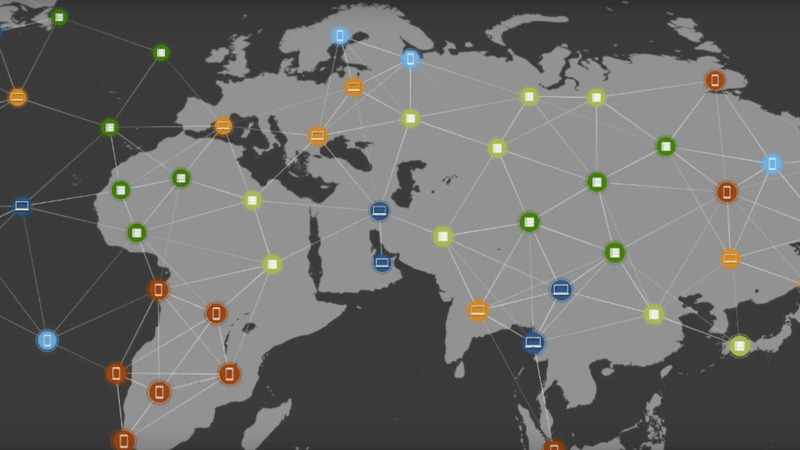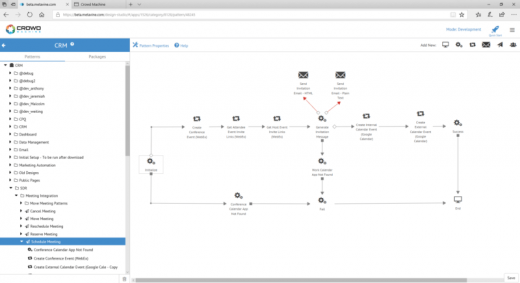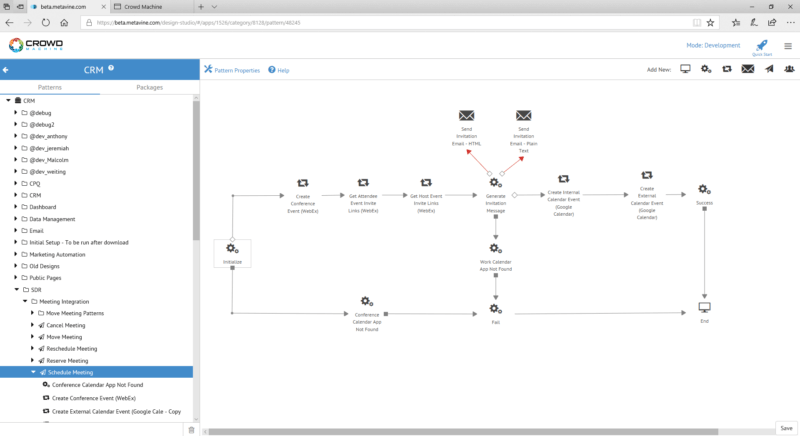Crowd Machine readies its blockchain-aided network for app development without developers
The ambitious startup will utilize a worldwide network of devices so non-technical users can create — and monetize — smart contracts and other applications.

When marketers need an application, they ask the IT department or they hire a developer.
If they want an application that utilizes blockchain, such as a smart contract, they go to a developer familiar with that technology.
But a startup named Crowd Machine is working to change that. They’re providing an App Studio where any non-technical user can build almost any application — including smart contracts and other apps that are stored on blockchains.
Founded last year and based in California and Australia, Crowd Machine has set up a Crowd Machine Network on Amazon’s cloud infrastructure, AWS.
The Crowd Machine Network includes a distributed Crowd Computer, an App Studio and marketplace called Crowd Share. While the Crowd Machine Network is currently being used by several major enterprises, CEO and founder Craig Sproule told me, the real coming-out party is when the Network is made available at the end of this year for use on virtually any computing device.
At that time, users will be able to download a lightweight virtual machine that runs a piece of the distributed Network on their laptop, tablet, or even a smartphone. As a huge distributed machine, the Network uses processing cycles from thousands and possibly millions of computing devices — including, eventually, Internet of Things devices like smart refrigerators.
The App Studio — which also runs across many computing devices — is designed so a non-technical user can create an app and test it, both for free. To do so, the application’s tasks are first mapped out by the user, and then the Studio can be utilized to visually lay out the functions, the user flows and the connection to existing data sources. Here’s a screen from the App Studio Editor:
As an example, Sproule said, a hospital administrator might want to build an application for admitting someone to a hospital. The administrator can assemble the functional paths with a flowchart-like tool, visually create an interface, connect it to a health insurance database (assuming IT has granted read-only access) and deploy it to the worldwide Network.
While building and testing the application is free, deployment to the Network by the hospital admin will cost tokens for the use of computing resources. Sproule said that security of the application is maintained because everything is cryptographically secured.
Those tokens — in ERC20 format, a popular format for tokens — can be purchased by the admin from Crowd Machine with a conventional currency like dollars or through a cryptocurrency like bitcoin.
In addition to using the admission application for her own hospital, the admin can also post it to the Network’s Crowd Share, a marketplace for Network applications. If others use it, they pay tokens for computing resources, some of which are then paid back to the administrator who created the application.
Sproule noted that, in a way, this is comparable to the tokens that are paid to “miners” who generate and add blocks to blockchains.
But, he pointed out, there is no mining involved here, and Crowd Machine — while built to utilize any blockchain — is not itself based on blockchain. But any blockchain version can be utilized as the Crowd Machine’s permanent, transparent shared ledger of transactions, which means that Crowd Machine can automatically select the best-priced blockchain when a shared ledger is needed.
One kind of application that the App Studio can generate is smart contracts.
With a trigger and a payoff, they allow contractual agreements — like an ad running on a publisher’s web page — to automatically pay their settlement once the task is completed. Although smart contracts are frequently tied to Ethereum blockchains, the Crowd Machine will be able to support and deploy any kind of smart contract.
Sproule said that Crowd Machine — which intends to work through telcos — can generate applications for use with blockchains about 45 times faster than conventional techniques, and it can be done by non-developers.
Because the Crowd Machine Network intends to be distributed worldwide, employing millions of devices for its operation, he added that it will be ideally situated to act as the supporting network for the billions of Internet of Things devices that will need to be connected together in a way that scales well.
One current drawback for blockchain technology is that it is generally very slow in handling transactional processing. But Sproule said that’s not a factor here. The Crowd Machine network will handle processing, and blockchain will be the shared ledger everyone can see.
“There’s nobody quite like us,” he told me. “We’re changing the way people think about building apps.”
Marketing Land – Internet Marketing News, Strategies & Tips
(29)




